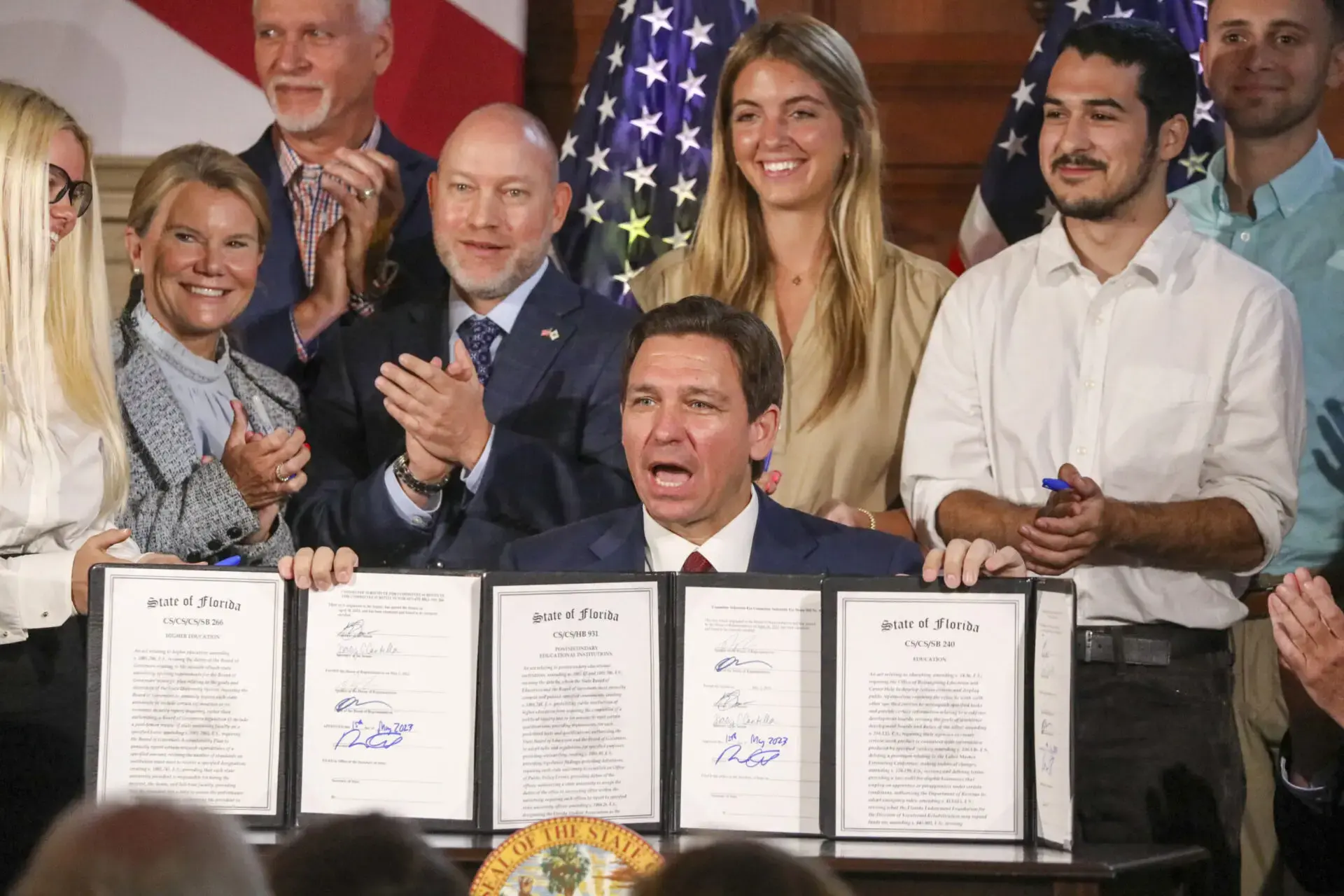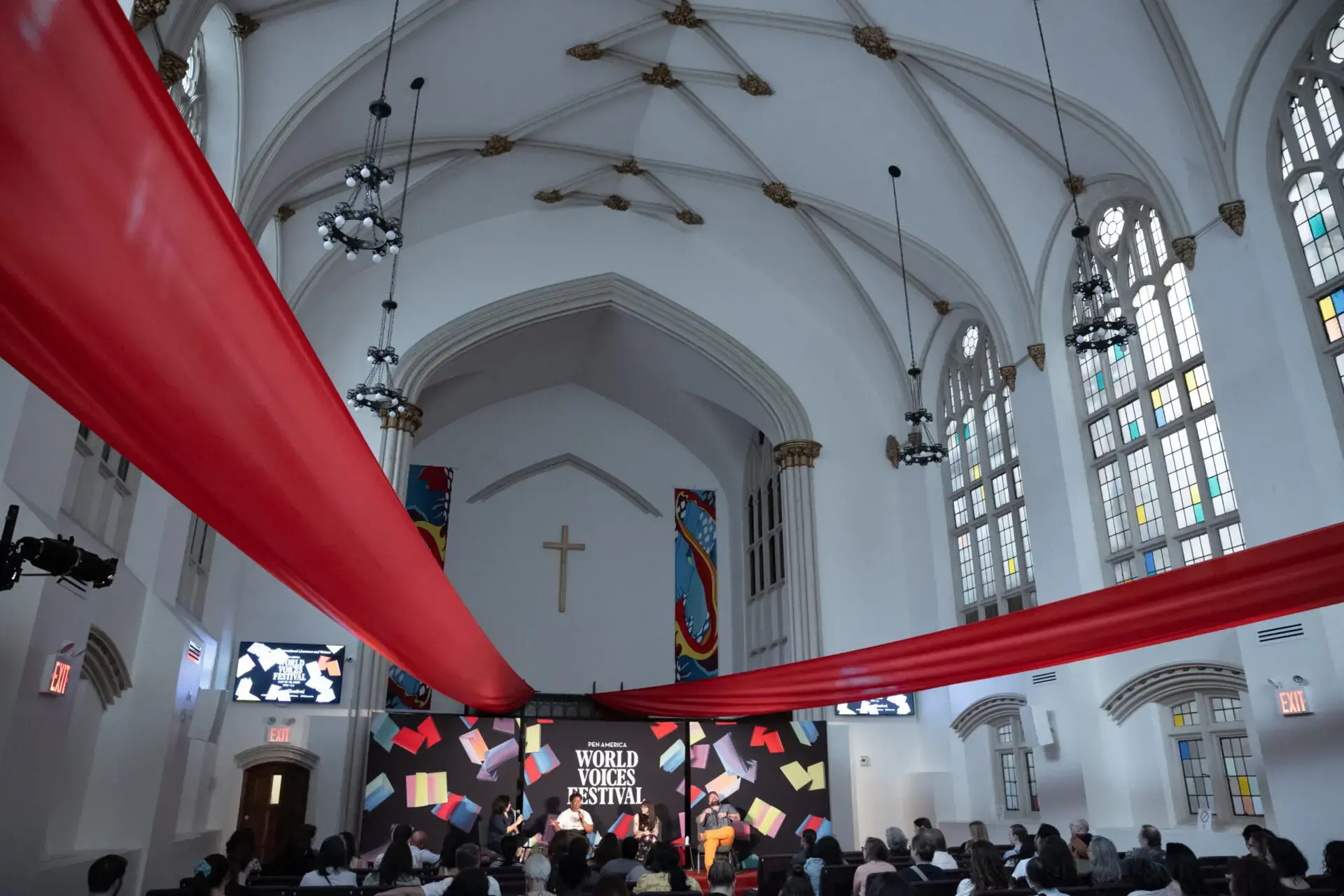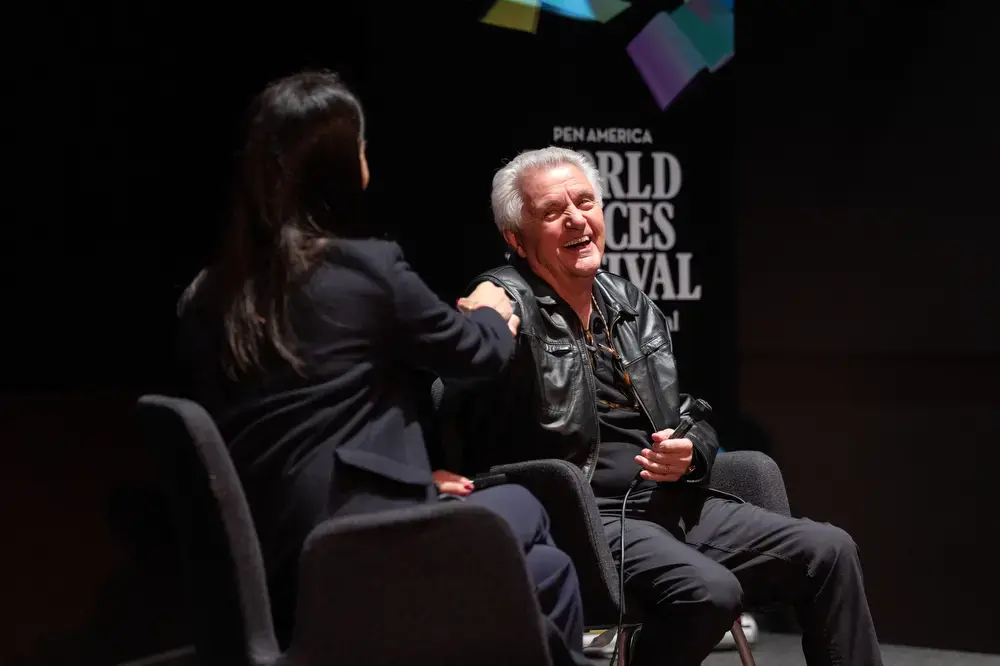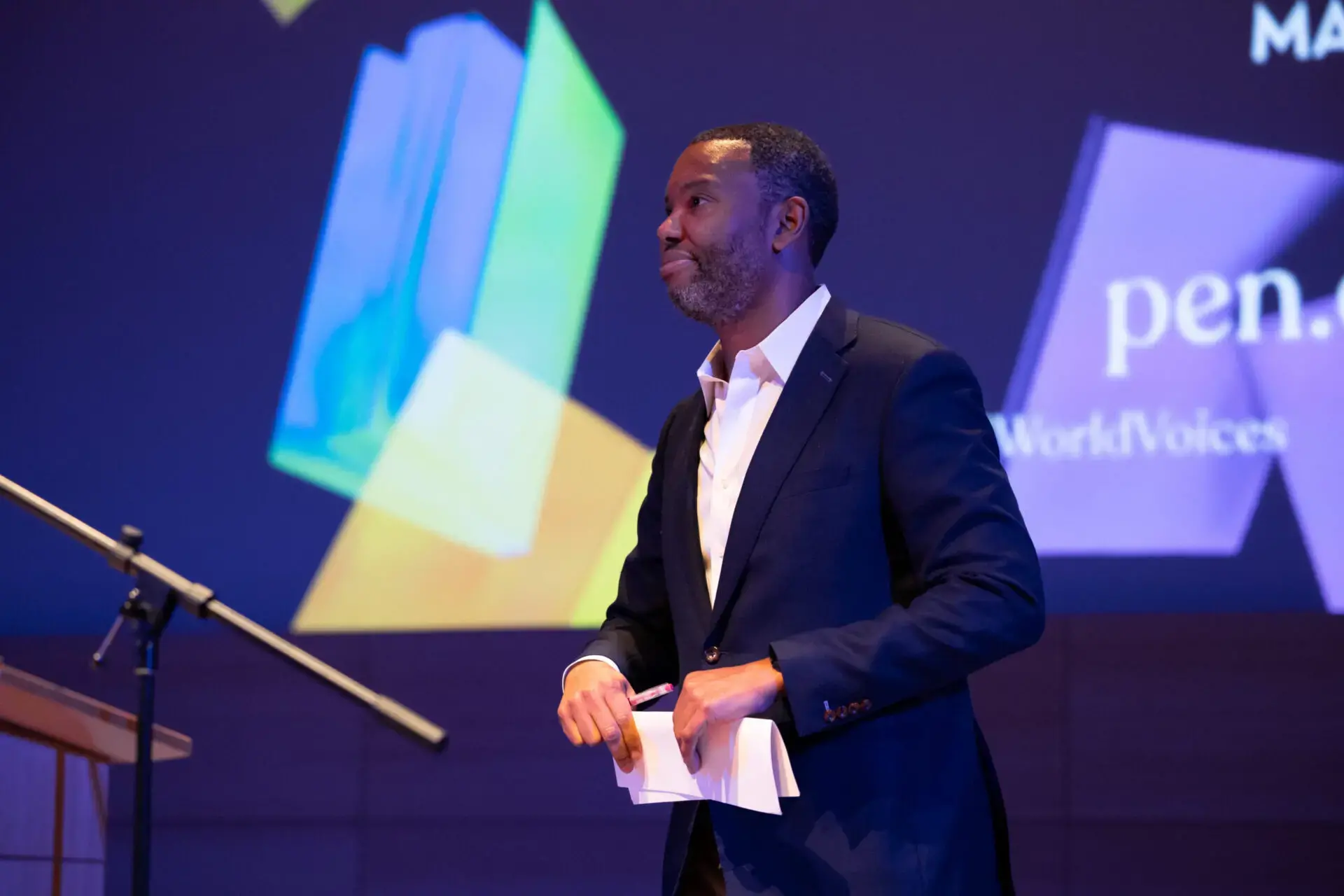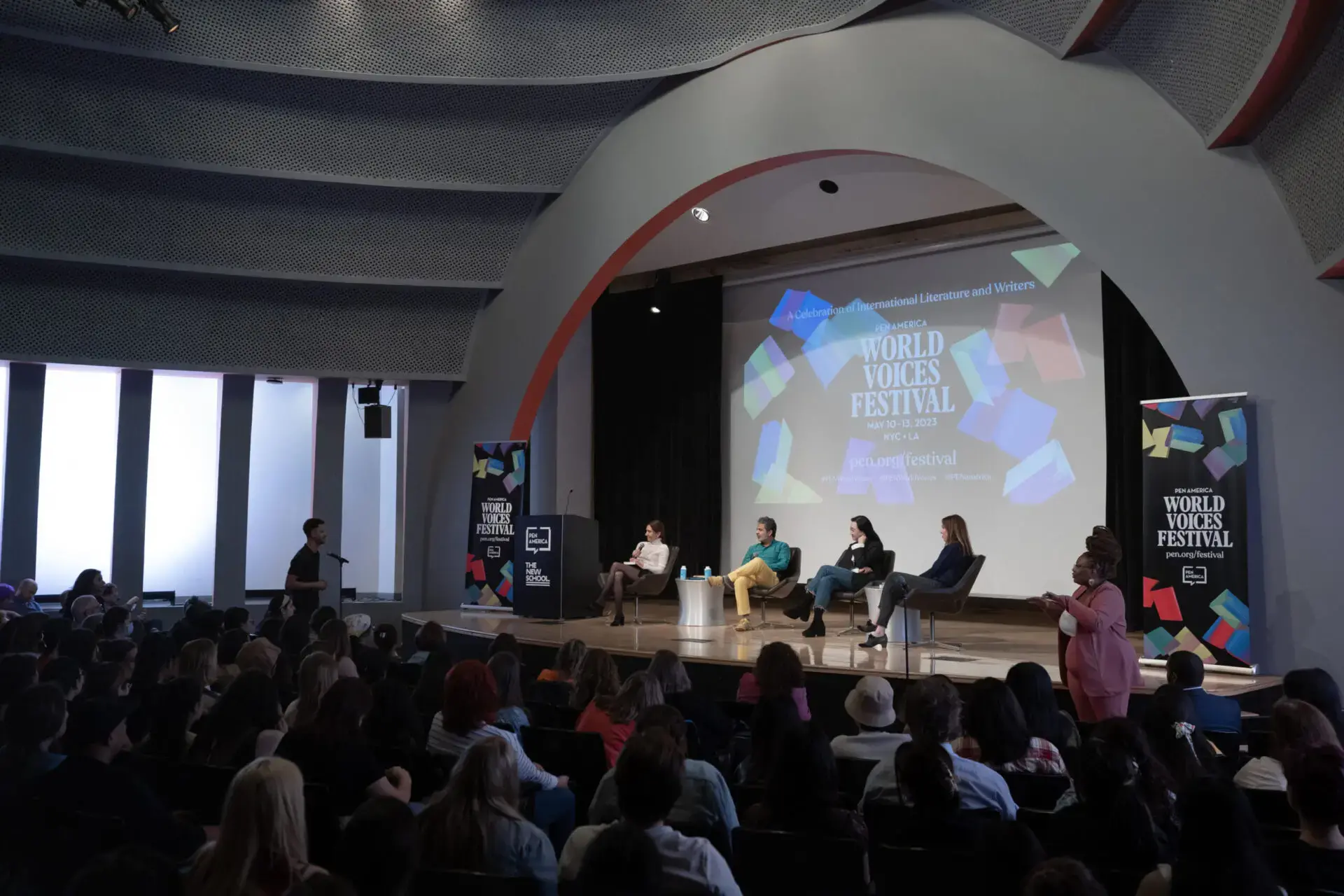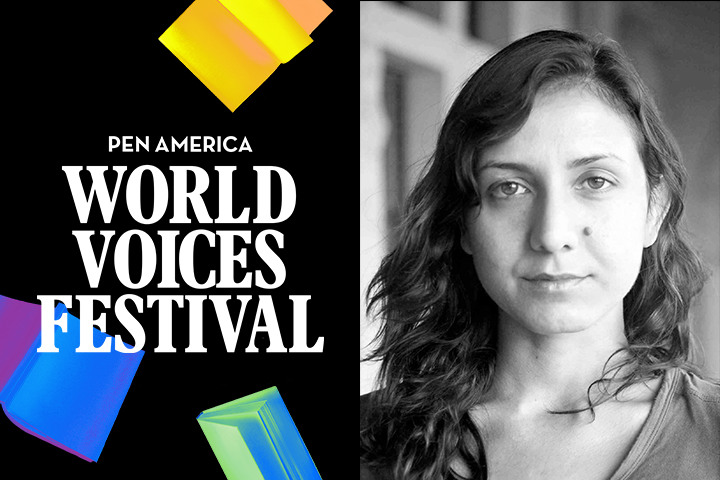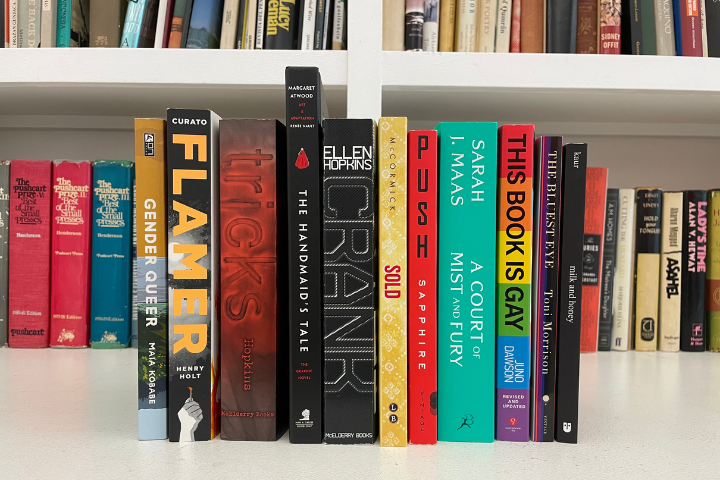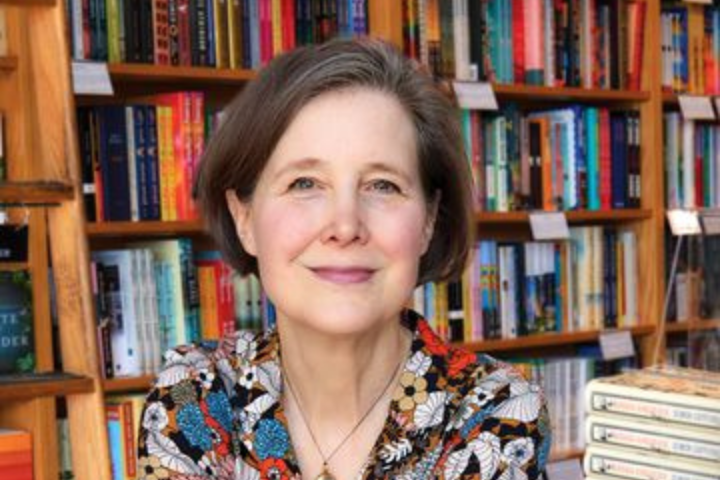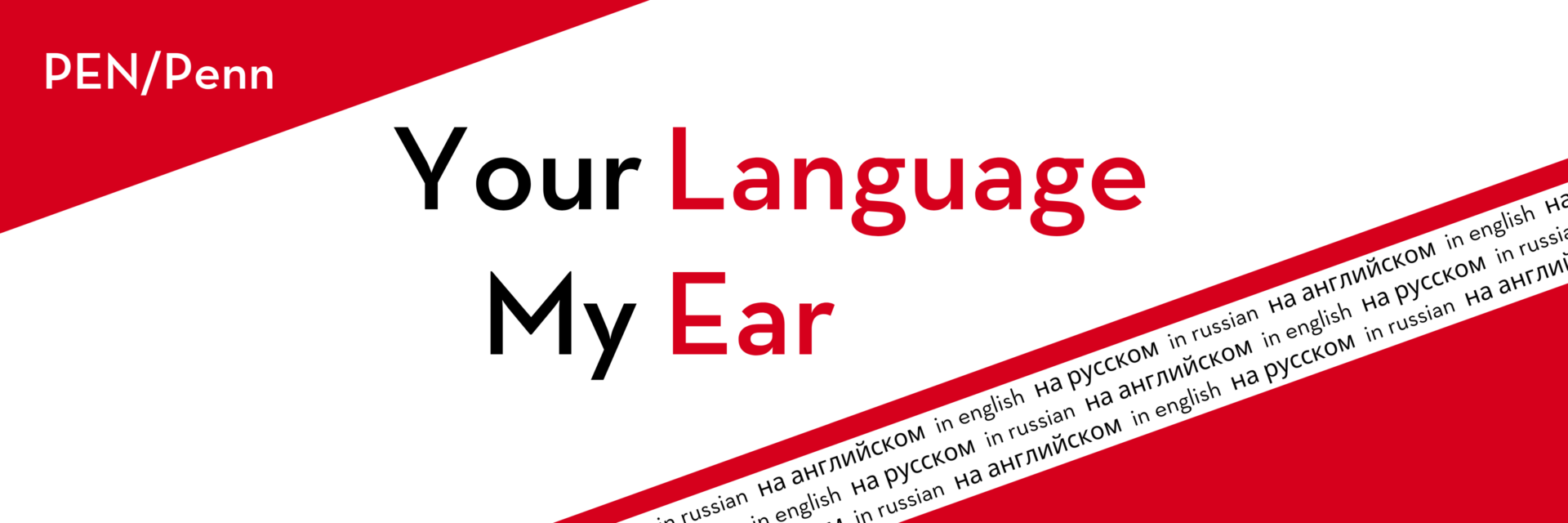
Poets: Ahmad Almallah • Jean Day • Mónica de la Torre • Kay Gabriel • Eugene Ostashvesky • Sawako Nakayasu • Timmy Straw
Translators: Luba Golburt • Igor Gulin • Yulia Kim • Tatiana Krasilnikova • Maria Malinovskaya • Lev Oborin • Ivan Sokolov • Alexander Zapol
Read about Your Language My Ear »
Poets
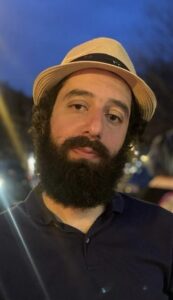 Ahmad Almallah is a poet from Palestine. His first book of poems Bitter English is now available in the Phoenix Poets Series from the University of Chicago Press. His new book Border Wisdom is forthcoming in September 2023 with Winter Editions. He received the Edith Goldberg Paulson Memorial Prize for Creative Writing, and his set of poems “Recourse,” won the Blanche Colton Williams Fellowship. Some of his poems and other writing appeared in Jacket2, Track//Four, All Roads will lead You Home, Apiary, Supplement, SAND, Michigan Quarterly Review, Making Mirrors: Righting/Writing by Refugees, Cordite Poetry Review, Birmingham Poetry Review, Great River Review, Kenyon Review, Poetry and American Poetry Review. Some of his work in Arabic has appeared in Al-Arabi Al-Jadid and Al-Quds Al-Arabi. He is currently Artist in Residence in Creative Writing at the University of Pennsylvania.
Ahmad Almallah is a poet from Palestine. His first book of poems Bitter English is now available in the Phoenix Poets Series from the University of Chicago Press. His new book Border Wisdom is forthcoming in September 2023 with Winter Editions. He received the Edith Goldberg Paulson Memorial Prize for Creative Writing, and his set of poems “Recourse,” won the Blanche Colton Williams Fellowship. Some of his poems and other writing appeared in Jacket2, Track//Four, All Roads will lead You Home, Apiary, Supplement, SAND, Michigan Quarterly Review, Making Mirrors: Righting/Writing by Refugees, Cordite Poetry Review, Birmingham Poetry Review, Great River Review, Kenyon Review, Poetry and American Poetry Review. Some of his work in Arabic has appeared in Al-Arabi Al-Jadid and Al-Quds Al-Arabi. He is currently Artist in Residence in Creative Writing at the University of Pennsylvania.
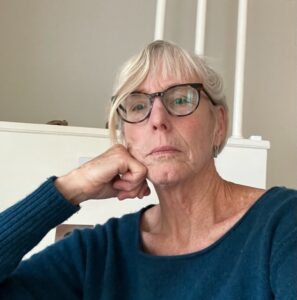 Jean Day is a poet, editor, and union activist whose involvement in the San Francisco Bay Area literary scene spans more than four decades. Her most recent book of poems, The Night Before the Day on Which, was published by Roof Books in 2022. Earlier books include Late Human (Ugly Duckling, 2021), The Triumph of Life (Insurance, 2018), Daydream (Litmus, 2017), and many others. Day’s work has been translated into French, Spanish, Swedish, Finnish, and Russian, the last three in tandem with the 1990 Five + Five translation project, which paired five Russian poets with five Americans, touring together to Stockholm, Helsinki, and Leningrad. Her versions of poems by Nadezhda Kondakova from that project were published in Third Wave: The New Russian Poetry (University of Michigan, 1992). She lives in Berkeley, California.
Jean Day is a poet, editor, and union activist whose involvement in the San Francisco Bay Area literary scene spans more than four decades. Her most recent book of poems, The Night Before the Day on Which, was published by Roof Books in 2022. Earlier books include Late Human (Ugly Duckling, 2021), The Triumph of Life (Insurance, 2018), Daydream (Litmus, 2017), and many others. Day’s work has been translated into French, Spanish, Swedish, Finnish, and Russian, the last three in tandem with the 1990 Five + Five translation project, which paired five Russian poets with five Americans, touring together to Stockholm, Helsinki, and Leningrad. Her versions of poems by Nadezhda Kondakova from that project were published in Third Wave: The New Russian Poetry (University of Michigan, 1992). She lives in Berkeley, California.

Mónica de la Torre was born and raised in Mexico City and is based in New York City. She is the author of six books of poetry, of which the most recent, Repetition Nineteen (Nightboat, 2020), centers on experimental translation. Other collections include The Happy End/All Welcome (Ugly Duckling Presse, 2017)—a riff on a riff on Kafka’s Amerika—and Public Domain (Roof Books, 2009). She has published several books in Mexico, including Acúfenos (Ditoria, 2007) and Taller de Taquimecanografía (Tumbona, 2011), written with the eponymous artists’ collective she co-founded. She writes about art and has translated works from the Spanish. She also has co-edited several anthologies, most recently, Women in Concrete Poetry 1959–79 (Primary Information, 2020). She is the recipient of the 2022 Foundation for Contemporary Arts C.D. Wright Award for Poetry and a 2022 Creative Capital grant and teaches at Brooklyn College.

Kay Gabriel (New York City, USA) is the author of A Queen in Bucks County (Nightboat, 2022), nominated for a Lambda Literary Award, and Kissing Other People or the House of Fame (Rosa, 2021; Nightboat, 2023). She co-edited We Want It All: An Anthology of Radical Trans Poetics (Nightboat, 2020). Her writing has been translated into French, Spanish, and Portuguese. She edits The Poetry Project Newsletter and lives in New York City.

Sawako Nakasayu is an artist working with language, performance, and translation – separately and in various combinations. Her newest books include Pink Waves (Omnidawn, 2023), a finalist for the PEN/Voelcker award, Some Girls Walk Into The Country They Are From (Wave Books, 2020) and the pamphlet, Say Translation Is Art (Ugly Duckling Presse, 2020). Translations include The Collected Poems of Chika Sagawa (Modern Library, 2020), as well as Mouth: Eats Color – Sagawa Chika Translations, Anti-translations, & Originals (Rogue Factorial, 2011), a multilingual work of both original and translated poetry. Settle Her, which was written on the #1 bus line in Providence on Thanksgiving Day of 2017, on the occasion of her cutting ties with normative Thanksgiving celebrations, is forthcoming from Solid Objects.

Eugene Ostashvesky was born in 1968 in Leningrad, USSR, grew up in New York, and now lives mainly in Berlin. His Feeling Sonnets, published in 2022 by Carcanet in the UK and NYRB Poets in the US, examine the effects of speaking a non-native language on emotions, parenting, and identity. An earlier book, The Pirate Who Does Not Know the Value of Pi (NYRB Poets, 2017), discusses communication difficulties between pirates and parrots. Its German translation by Uljana Wolf and Monika Rink won the City of Münster International Poetry Prize. It was also the pretext of a mini-opera by Lucia Ronchetti at the 2019 Venice Biennale. His other books of poetry, The Life and Opinions of DJ Spinoza and Iterature, were published by Ugly Duckling Presse in 2008 and 2005. As translator Russian avantgarde literature, Ostashevsky is best known for his OBERIU: An Anthology of Russian Absurdism (Northwestern UP, 2006) and Alexander Vvedensky’s An Invitation for Me to Think (with Matvei Yankelevich; NYRB Poets, 2013), which won the National Translation Award. His translations of contemporary Russophone writing include F Letter: New Russian Feminist Poetry (co-edited with Ainsley Morse and Galina Rymbu; isolarii, 2020) and Lucky Breaks by Yevgenia Belorusets (New Directions, 2022).
 Timmy Straw is a poet and translator from Oregon. Their work has been supported by fellowships from the Iowa Writers’ Workshop, the Fulbright program, and the Kone Foundation, and their poems appear in Annulet, The Paris Review, Yale Review and elsewhere. Their first book, The Thomas Salto, comes out on Fonograf Editions in fall 2023, and they’re working with Ainsley Morse on a collection of translations of the Russian poet Grigori Dashevsky. They study comparative literature at the University of Pennsylvania.
Timmy Straw is a poet and translator from Oregon. Their work has been supported by fellowships from the Iowa Writers’ Workshop, the Fulbright program, and the Kone Foundation, and their poems appear in Annulet, The Paris Review, Yale Review and elsewhere. Their first book, The Thomas Salto, comes out on Fonograf Editions in fall 2023, and they’re working with Ainsley Morse on a collection of translations of the Russian poet Grigori Dashevsky. They study comparative literature at the University of Pennsylvania.
Translators
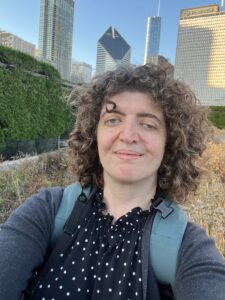 Luba Golburt is an Associate Professor of Slavic Languages and Literatures at the University of California, Berkeley. She was born in Tashkent, Uzbekistan and raised in Northern California. Her main interest is in poetry and lyric theory from the 18th century to the present. She is the author of the prize-winning The First Epoch: The Eighteenth Century and the Russian Cultural Imagination (2014) and is currently at work on a book on the Russian nature lyric as well as co-editing the Oxford Handbook of Russian Poetry, which brings together more than forty scholars and poets in a reassessment of the Russian poetic tradition.
Luba Golburt is an Associate Professor of Slavic Languages and Literatures at the University of California, Berkeley. She was born in Tashkent, Uzbekistan and raised in Northern California. Her main interest is in poetry and lyric theory from the 18th century to the present. She is the author of the prize-winning The First Epoch: The Eighteenth Century and the Russian Cultural Imagination (2014) and is currently at work on a book on the Russian nature lyric as well as co-editing the Oxford Handbook of Russian Poetry, which brings together more than forty scholars and poets in a reassessment of the Russian poetic tradition.
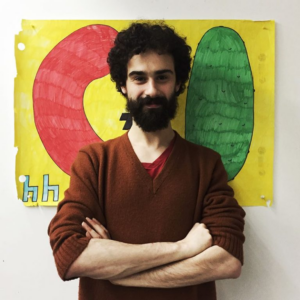 Igor Gulin (Moscow, Russia) is a writer, critic, and essayist based in Moscow. He works as a cultural reviewer for Kommersant-Weekend. He is also the editor and cofounder of the Nosorog literary magazine and is an independent researcher working in the field of late Soviet culture. His poetry, prose, and articles have appeared in NLO, Translit, Textonly, Colta, and more.
Igor Gulin (Moscow, Russia) is a writer, critic, and essayist based in Moscow. He works as a cultural reviewer for Kommersant-Weekend. He is also the editor and cofounder of the Nosorog literary magazine and is an independent researcher working in the field of late Soviet culture. His poetry, prose, and articles have appeared in NLO, Translit, Textonly, Colta, and more.
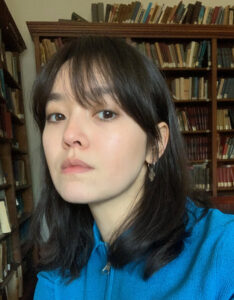 Yulia Kim (New York City, USA) is a PhD candidate at the Department of Slavic Languages and Literatures and the Institute for Comparative Literature and Society at Columbia University. She holds BA in Russian literature (2017) and MA in literary theory (2019) from Saint Petersburg State University. Yulia’s research interests include XX-century Soviet culture and literature, avant-garde theories of art, and the theory of violence. In her current research, Yulia investigates the interrelations of various literary forms and various forms of violence, specifically focusing on the early-Soviet and contemporary Russophone examples.
Yulia Kim (New York City, USA) is a PhD candidate at the Department of Slavic Languages and Literatures and the Institute for Comparative Literature and Society at Columbia University. She holds BA in Russian literature (2017) and MA in literary theory (2019) from Saint Petersburg State University. Yulia’s research interests include XX-century Soviet culture and literature, avant-garde theories of art, and the theory of violence. In her current research, Yulia investigates the interrelations of various literary forms and various forms of violence, specifically focusing on the early-Soviet and contemporary Russophone examples.
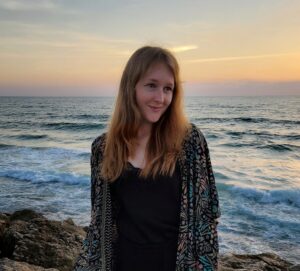 Tatiana Krasilnikova (New York City, USA) is a poet and a literary scholar. She is a PhD student in Slavic and Comparative Literatures at Columbia University. She is a co-author of the book Boris Pasternak’s Poetic Language. “My Sister – Life” through the Prism of Idioms and an author of several articles on Russophone 20th century poetry and prose. Her current research focuses on Russophone feminist poetry of the 20th and 21st centuries. She is also studying the language of pro-war ideology and over-identification. Her poems have appeared in DOXA Magazine, F–writing, ROAR, “Olimp Circus” + TV, Syg.ma, Flagi, and other media, and have been translated into English and Italian.
Tatiana Krasilnikova (New York City, USA) is a poet and a literary scholar. She is a PhD student in Slavic and Comparative Literatures at Columbia University. She is a co-author of the book Boris Pasternak’s Poetic Language. “My Sister – Life” through the Prism of Idioms and an author of several articles on Russophone 20th century poetry and prose. Her current research focuses on Russophone feminist poetry of the 20th and 21st centuries. She is also studying the language of pro-war ideology and over-identification. Her poems have appeared in DOXA Magazine, F–writing, ROAR, “Olimp Circus” + TV, Syg.ma, Flagi, and other media, and have been translated into English and Italian.
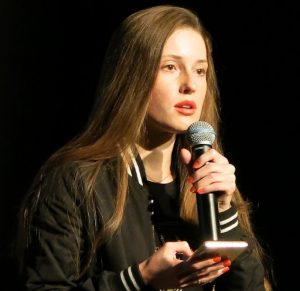 Maria Malinovskaya is a poet, translator, and founder and editor-in-chief of RADAR international poetry magazine. She is an author of two books: a documentary poetry project and collection Kaimaniya (2020), based on the speech of people suffering from mental disorders, and The Movement of Hidden Colonies (2020). Malinovskaya’s poetry has been published in numerous anthologies and magazines and translated into many languages. Malinovskaya’s poem, “white-red-white flag,” based on the events relating to the Belarusian protests of 2020, won one of the main awards for poetry written in Russian language, the Poesia Prize (2021).
Maria Malinovskaya is a poet, translator, and founder and editor-in-chief of RADAR international poetry magazine. She is an author of two books: a documentary poetry project and collection Kaimaniya (2020), based on the speech of people suffering from mental disorders, and The Movement of Hidden Colonies (2020). Malinovskaya’s poetry has been published in numerous anthologies and magazines and translated into many languages. Malinovskaya’s poem, “white-red-white flag,” based on the events relating to the Belarusian protests of 2020, won one of the main awards for poetry written in Russian language, the Poesia Prize (2021).
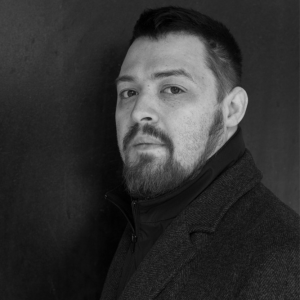 Lev Oborin (Yerevan, Armenia) is a poet, translator, and literary critic. He authored five books of poetry and a children’s book. His poems and articles have been published in various outlets in Russia and abroad, such as Poetry, Poem, Harriman Magazine, International Poetry Review, Novy Mir, Znamia, Vozdukh, Colta.ru, and Gorky.media. He works as an editor for Polka, a website dedicated to Russian literature, and edits a nonfiction series on everyday culture at the New Literary Observer. Oborin has translated several books, including David Remnick’s Lenin’s Tomb and he has translated poetry by Robert Frost, Denise Duhamel, Charles Simic, John Ashbery, Yumlembam Ibomcha Singh, Czesław Miłosz, Tadeusz Różewicz, Justyna Bargielska, and others. Oborin is a winner of Andrei Bely Prize for his criticism (2021), the Parabola Prize for young authors (2019), and the Znamya magazine’s literary award (2010). He has participated in many literary festivals and activities in Russia and other countries, including the United States, the United Kingdom, Poland, Ukraine, and Latvia.
Lev Oborin (Yerevan, Armenia) is a poet, translator, and literary critic. He authored five books of poetry and a children’s book. His poems and articles have been published in various outlets in Russia and abroad, such as Poetry, Poem, Harriman Magazine, International Poetry Review, Novy Mir, Znamia, Vozdukh, Colta.ru, and Gorky.media. He works as an editor for Polka, a website dedicated to Russian literature, and edits a nonfiction series on everyday culture at the New Literary Observer. Oborin has translated several books, including David Remnick’s Lenin’s Tomb and he has translated poetry by Robert Frost, Denise Duhamel, Charles Simic, John Ashbery, Yumlembam Ibomcha Singh, Czesław Miłosz, Tadeusz Różewicz, Justyna Bargielska, and others. Oborin is a winner of Andrei Bely Prize for his criticism (2021), the Parabola Prize for young authors (2019), and the Znamya magazine’s literary award (2010). He has participated in many literary festivals and activities in Russia and other countries, including the United States, the United Kingdom, Poland, Ukraine, and Latvia.
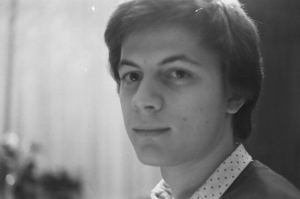 Ivan Sokolov is a poet, translator, and critic from St Petersburg and a PhD Candidate at UC Berkeley. Author of five books of poetry, he has translated G. M. Hopkins, Gertrude Stein’s Tender Buttons, Frank O’Hara’s Oranges (short-listed for the Nora Gal’ Award), John Ashbery, Barbara Guest, the L=A=N=G=U=A=G=E and the San Francisco Renaissance poets, Clayton Eshleman, Norma Cole and other writers into Russian, and the poetry of Natalia Azarova into English. In 2019–2022 he served as contributing editor at GRIOZA, where in 2020 he curated an international festschrift for the centenary of Paul Celan. English translations of his own poetry were included into Deep Vellum’s 2022 Verses on the Vanguard. In 2016 he was a finalist of the Arkadii Dragomoshchenko Award for Poetry. Sokolov has participated in the Russo-German poetry project VERSschmuggel (2015), in PEN America’s Writers in Dialogue translation seminar (2020) and contributed to music and dance collaborations.
Ivan Sokolov is a poet, translator, and critic from St Petersburg and a PhD Candidate at UC Berkeley. Author of five books of poetry, he has translated G. M. Hopkins, Gertrude Stein’s Tender Buttons, Frank O’Hara’s Oranges (short-listed for the Nora Gal’ Award), John Ashbery, Barbara Guest, the L=A=N=G=U=A=G=E and the San Francisco Renaissance poets, Clayton Eshleman, Norma Cole and other writers into Russian, and the poetry of Natalia Azarova into English. In 2019–2022 he served as contributing editor at GRIOZA, where in 2020 he curated an international festschrift for the centenary of Paul Celan. English translations of his own poetry were included into Deep Vellum’s 2022 Verses on the Vanguard. In 2016 he was a finalist of the Arkadii Dragomoshchenko Award for Poetry. Sokolov has participated in the Russo-German poetry project VERSschmuggel (2015), in PEN America’s Writers in Dialogue translation seminar (2020) and contributed to music and dance collaborations.

Alexander Zapol is the founding member of the multimedia poetry project Orbita. He is a translator of Latvian and American poetry into Russian, and editor of numerous poetry collections of Latvian and Russian poets. He has authored an anthology Latvian/Russian Poetry: Poems in Russian Written by Latvian Poets (2011) with a critical analysis of the material.
Jump to: Read about Your Language My Ear | Meet the 2023 Participants (top) | Meet the 2022 Participants | Meet the Expert Group

